All Resources
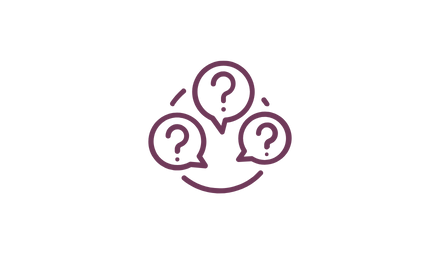
In multiple choice questions, the question is followed by more than one option and the candidate answers the question by choosing one or more options. The assessment system immediately evaluates the answer given by each candidate, taking into account the grade of the question and the dimensions associated with it, the success contribution rates associated with the options, and the trends associated with the options. If preferred, candidates can see questions that they answered incorrectly during or after the test, and a feedback content can be defined to help them understand why their answer was wrong, or why the correct option was correct.
Multiple choice question's text is created using a rich content editor. You can add picture, video, audio, reading text, mathematical equations, formulas and expressions to questions. Multiple choice question's text can be created left-to-right or right-to-left. Owing to the features in the question maker editor, the multiple-choice question can very easily become a "reading question", a "listening question" or a "math question".
Options can consist of simple text or formatted text. The option can be created in the most accurate way owing to formatting options such as writing bold, italic, underlining, choosing text color, font and size, and highlighting text.
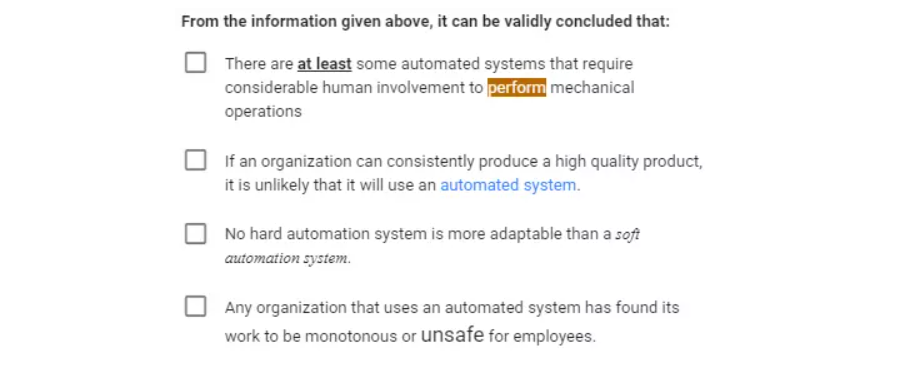
You can add long texts consisting of many paragraphs to the options.

Options of multiple choice questions can consist of images. You can upload any picture or figure to each option.
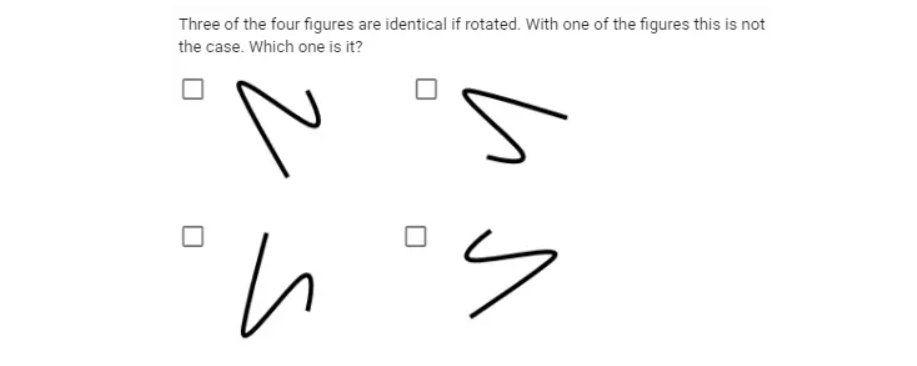
Options can also be a combination of images, figures, and text.
Audio can be added to the options. In this case, the candidate listens to the audio recordings in the options and then chooses from the options.
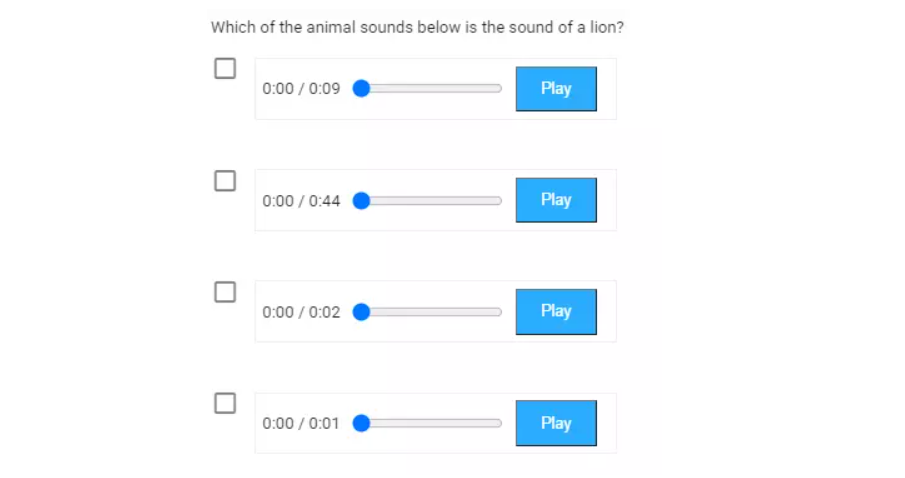
You can set the following “listen to audio recording” settings for each audio recording file uploaded in the options:
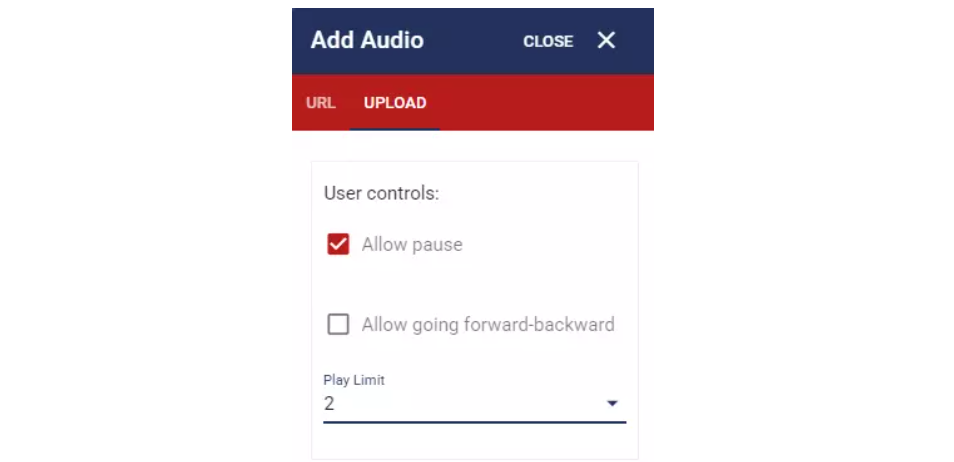
You can add video to each option. In this case, the candidate can watch the videos in the options and then choose from the options.

For each video uploaded to the options, you can set the following “video playback” settings:
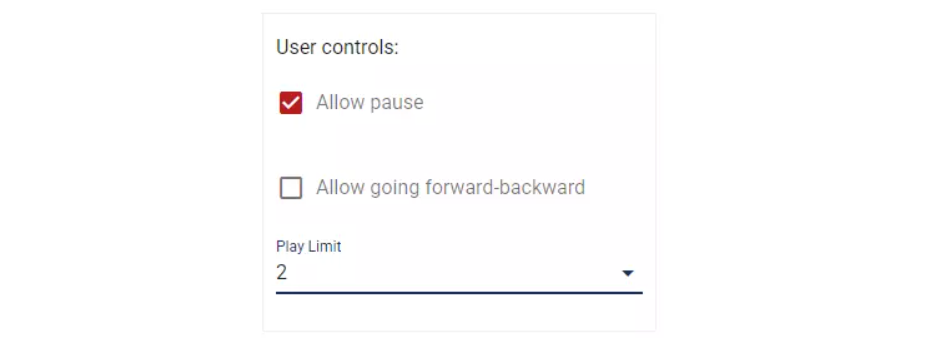
You can add a mathematical formula, equation, or expression to each option, either by typing in TeX or LaTeX format, or using the math editor.
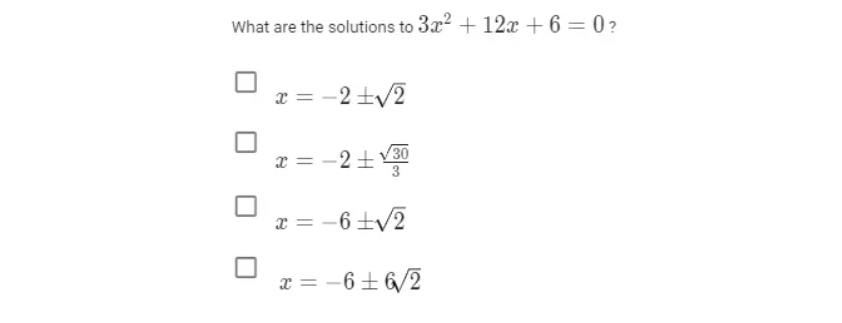
In this case, the candidate first uploads the files in the options, then chooses from the options.
If you prefer, you can add hints to the multiple choice questions. Hints can be used to clear up some misunderstandings in the question or to help the candidate who is facing with a trouble answering the question.
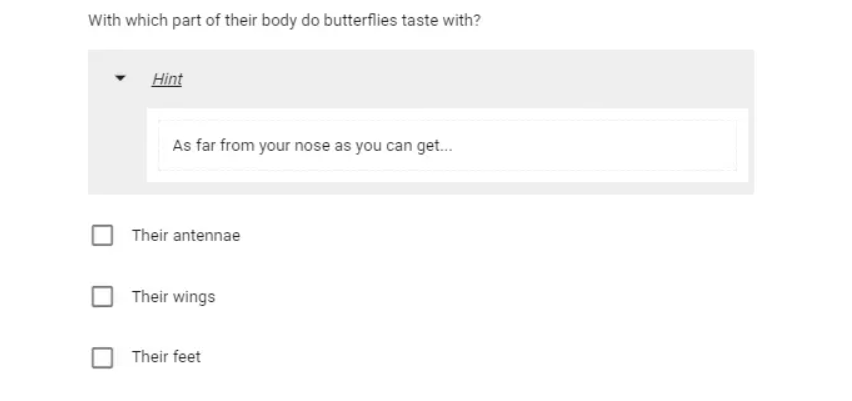
Correct and incorrect options of multiple-choice questions can be shown to the candidate immediately after the multiple-choice question has been answered by the candidate, or after the candidate has completed the test. If the candidate answered the question incorrectly, the feedback content to be added to the question and an explanation of the correct answer to the question or an explanation of why the distracting answers were incorrect can be shown.
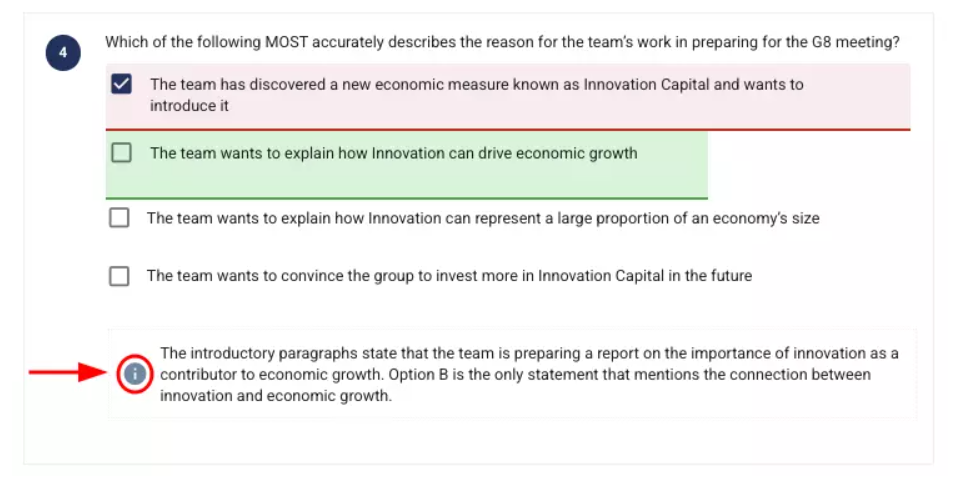
You can set the order of options as you want by moving up or down.
You can order the options of multiple choice questions randomly mixed for each candidate. All options can be ordered randomly or you can fix the order of the options you want.
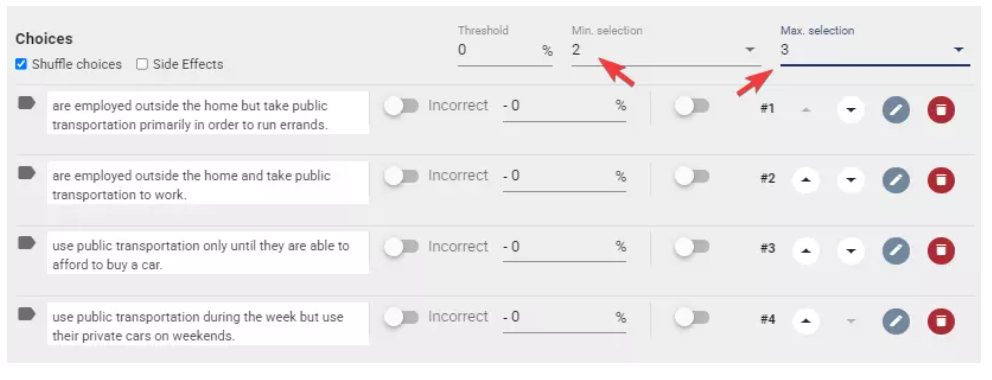
You can determine the minimum number and maximum number of options the candidate can choose among the options of the multiple-choice question.
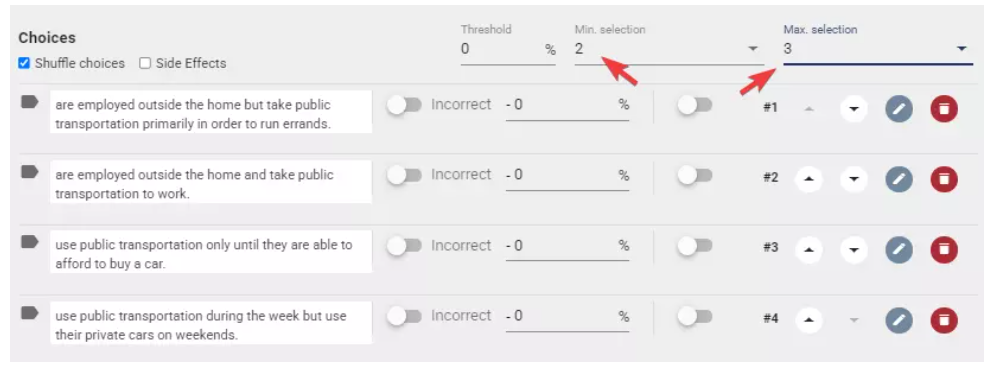
In such case, candidates cannot select less or more options than they should choose.

Options can be displayed side-by-side. It is possible to determine how much space (range) will be between the options.

Options can be displayed in a table template where you specify the number of columns.

If your options are simple text, the options can be displayed as a selectable list.
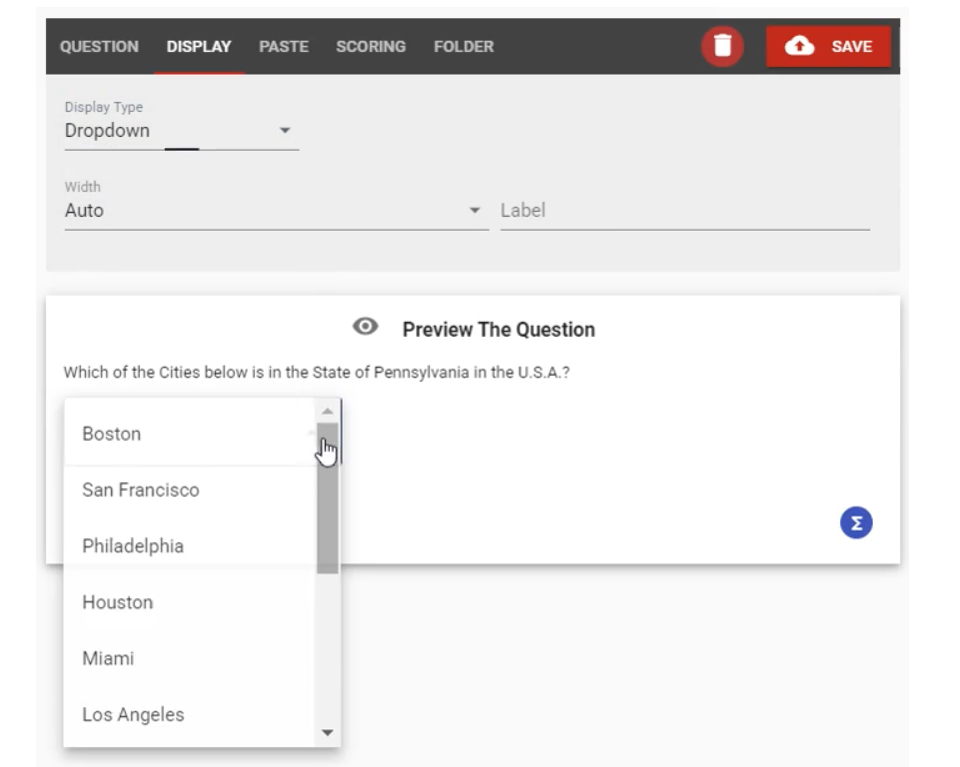
If a multiple choice question aims to assess knowledge, competence, skill etc on a subject, then one or more of the options created will be the correct option, and one or more of the options will be the incorrect (distracting) option.
You can select the correct ones among the options.
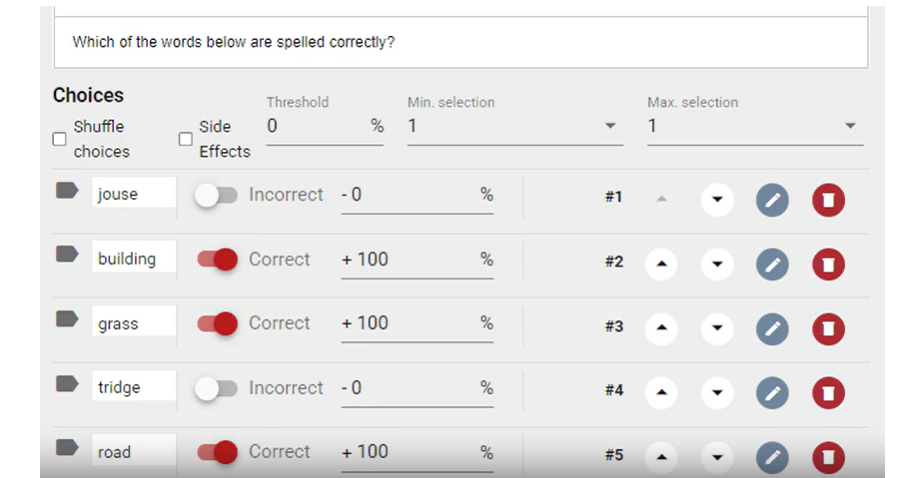
If there is more than one correct option and you allow the candidate to select more than one option, you can weight the options by specifying the "success contribution rate" for each option. The candidate gets success from the question in proportion to the "success contribution rates" of the options he has selected.
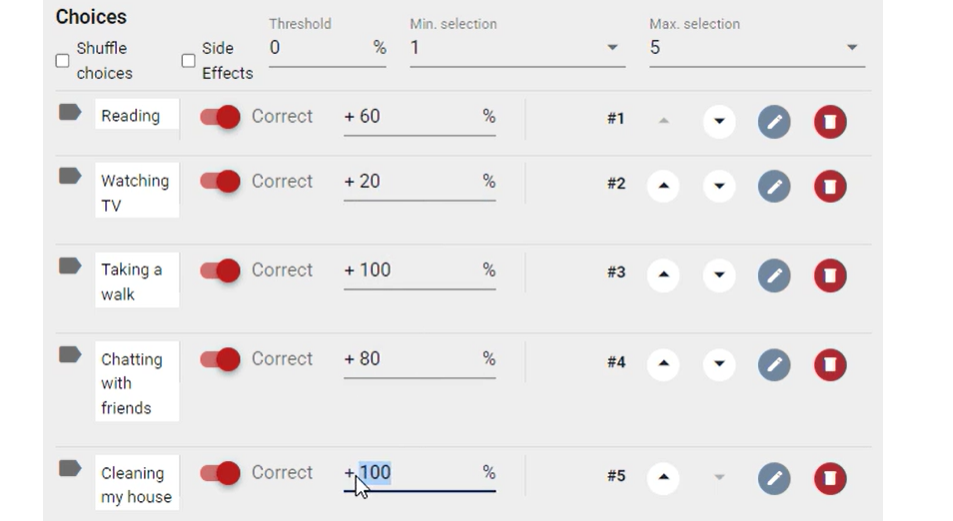
If you want the candidate's success rate to decrease when the candidate chooses the incorrect options, you can set a negative weight (success contribution rate) to the distracting options.
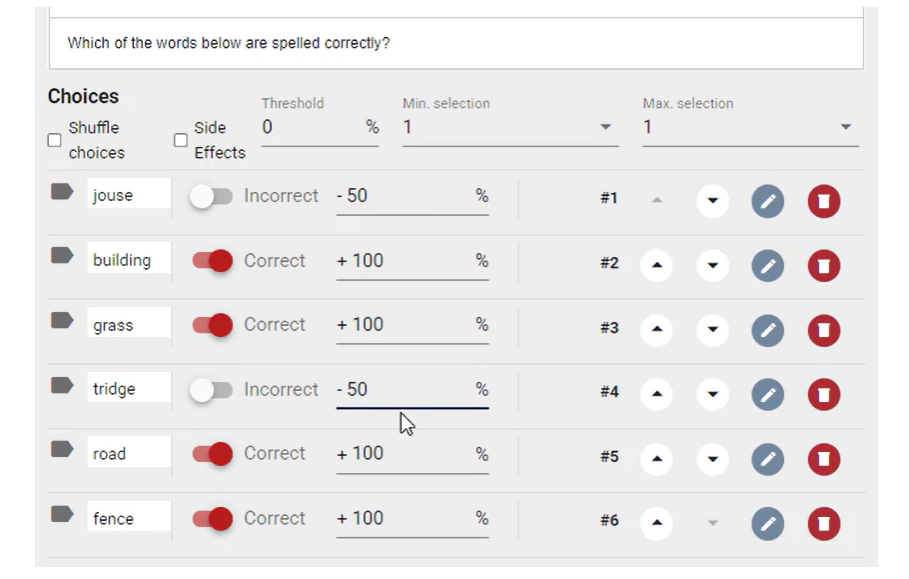
As candidates achieve a success rate in proportion to the options they have selected, if the rate they have achieved is below the passmark specified, you can have the success rate set to zero automatically. For this, you can specify a “passmark rate” for the question.
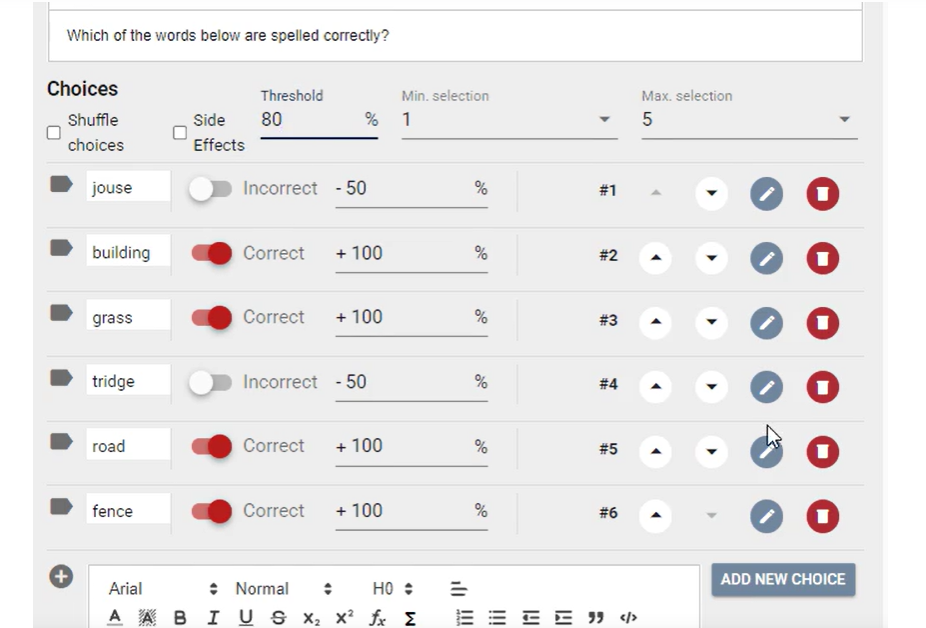
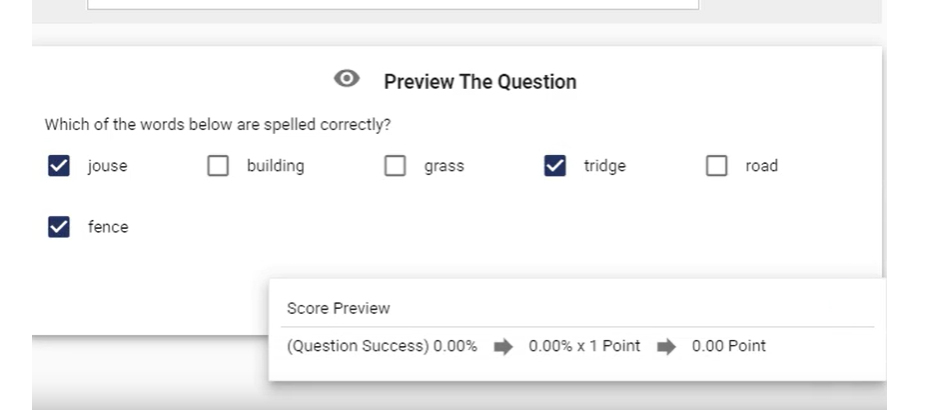
If you want to test how the success rates you have determined work, you can observe how the system automatically evaluates the given answer by selecting the options you want from the preview panel in the multiple choice question editor.
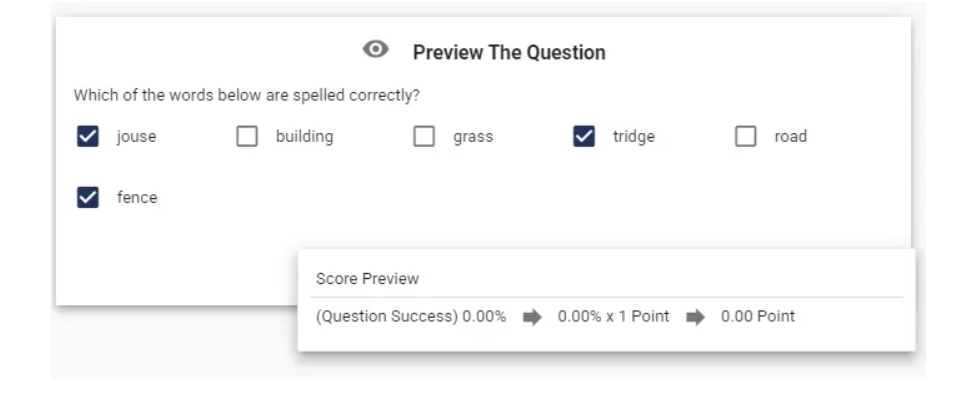
You can set a default point for a question.
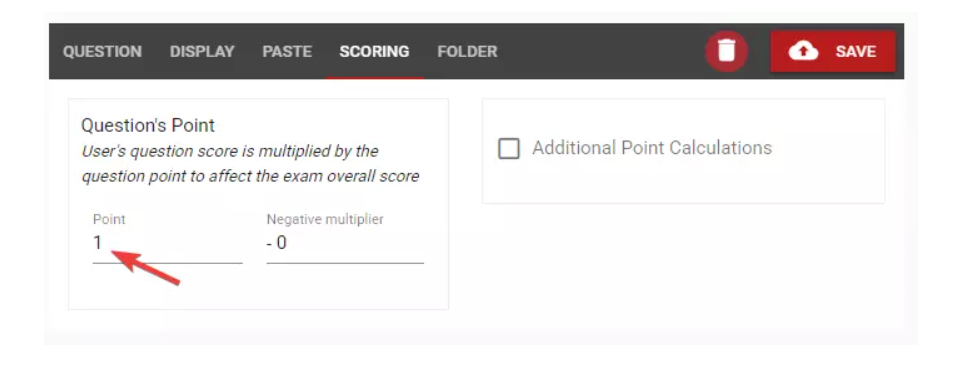
When questions are added to the test, the question's points on the test becomes the question's default point. Then you can change the point of the question, specific to the test. In this way, the same question can have different points on different tests.

If the candidate answers the question incorrectly, that means if the total success rate of the options in the multiple-choice question is negative, you can have the test grade affected negatively. For this, you can set a negative score multiplier for the question.
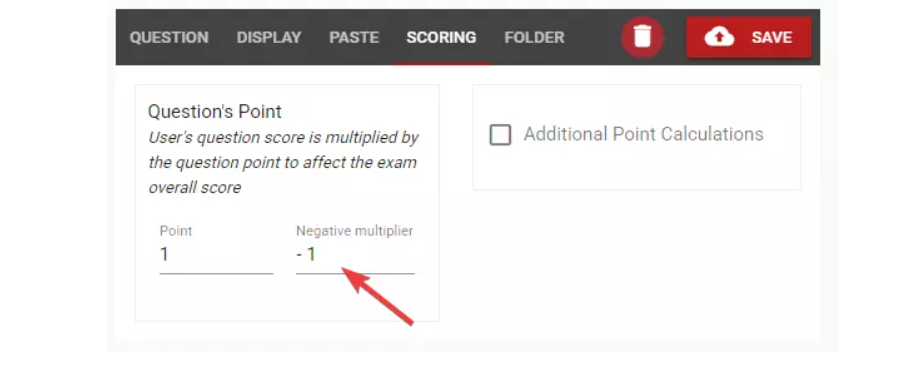
With a multiple-choice question, you can evaluate more than one dimension in the dimension system. In order to this, you can link the question with one or more dimensions. For instance, if you want a question to effect both the test grade, and the "geography" dimension and the "general culture" dimension, you can also link the question with the "geography" and "general culture" dimensions.
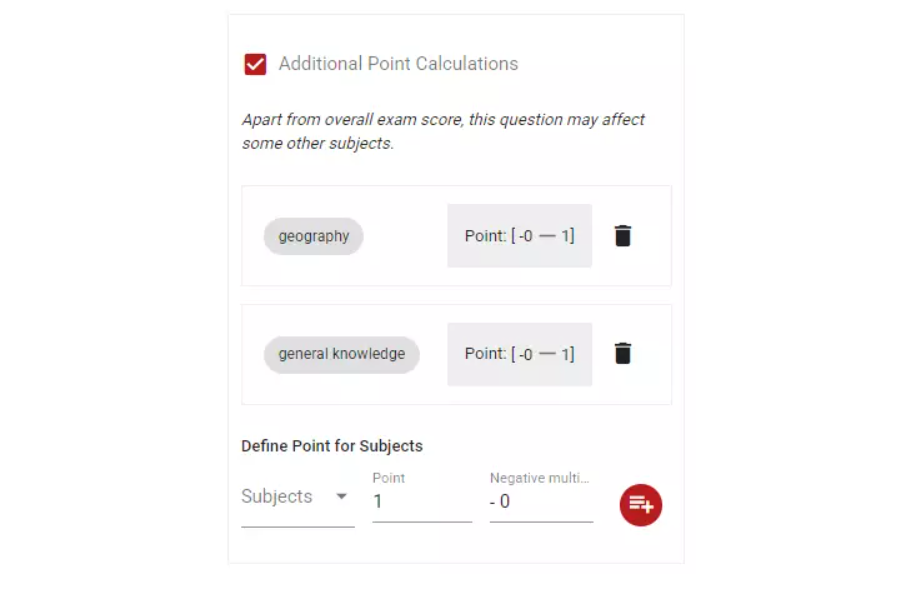
As the question is linked to a dimension, dimensions can be designed in a hierarchical structure. For instance, if you linked the question to a dimension called "math/prime numbers", the question will effect the prime numbers heading under both math and prime numbers under math.
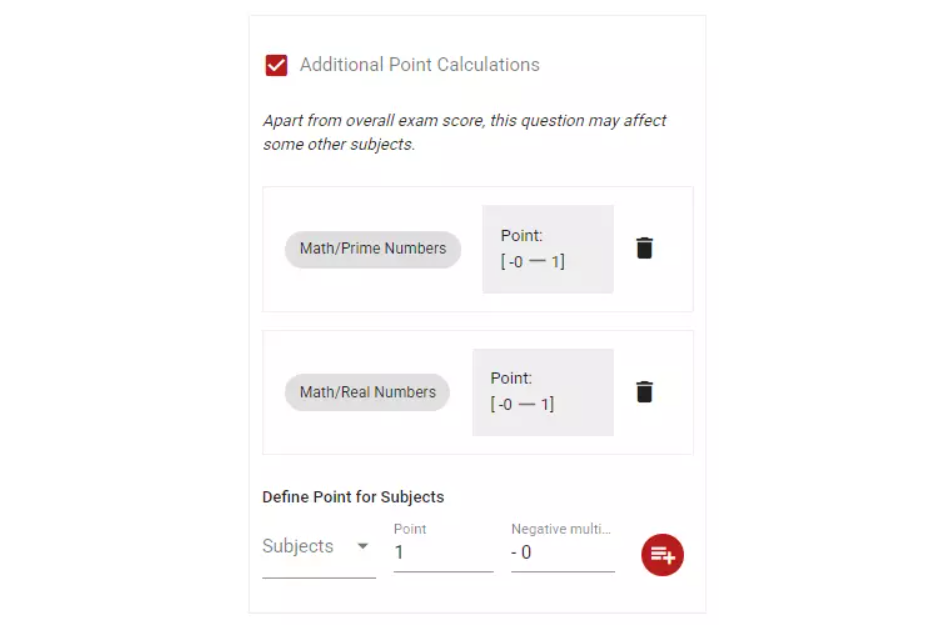
If you want to evaluate the candidate's tendency in a topic with a multiple choice question, you can add a tendency impact point to the options. In such multiple-choice questions, which are widely used in tests such as personality inventories and competency inventories, each of options selected by candidates can increase or decrease their point for a tendency.
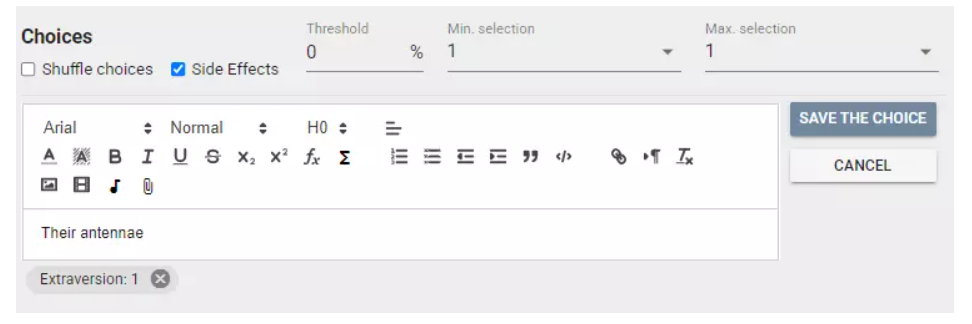
In particular, the “Quick Multiple-Choice Question Creator” can be used to create simple multiple-choice questions quickly. You can create your multiple-choice question by writing the question to the first line, then after having left a blank inserting each option to a new line.
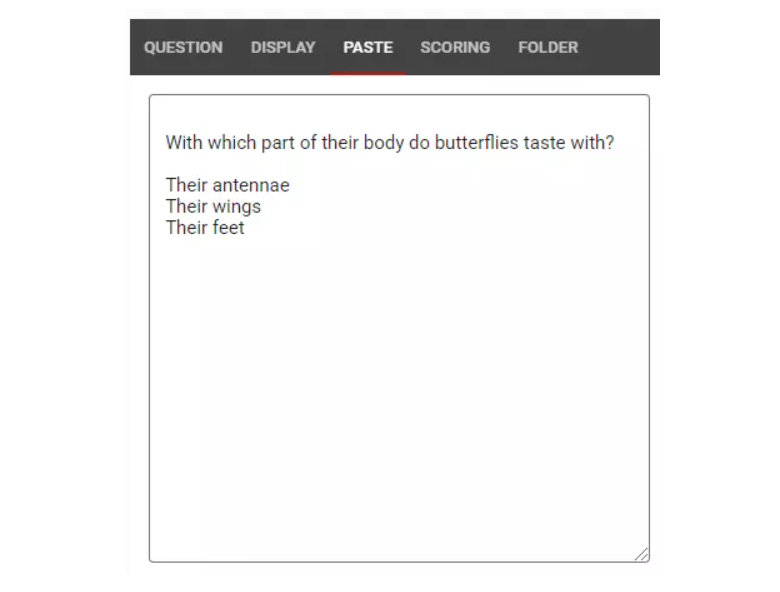
After having created the general structure of your question in this way, you can make updates specific to the question text or options.
If you want to import many multiple-choice questions into your question bank or test at once, you can use the "Multiple-Choice Questions Import Templates".
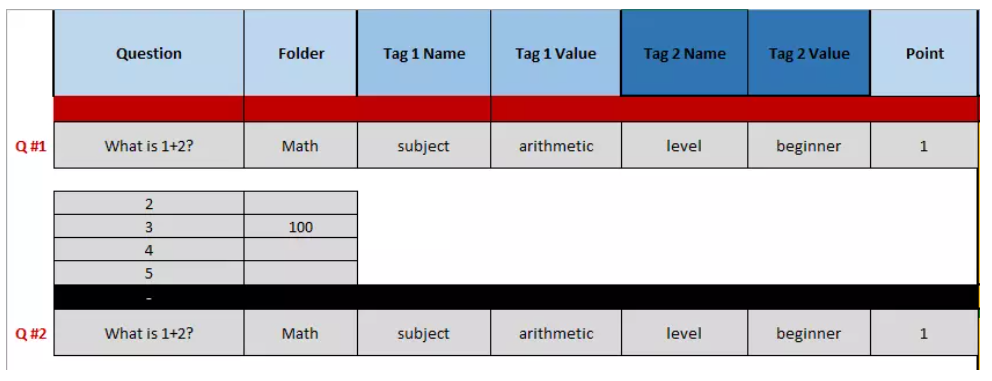
You can group multiple-choice questions under a single content. In such case, all questions can be asked through a common content. The content can be a reading, a video, an audio file, or a picture.
You can run the question in preview mode to be sure that it works exactly the way you want it to. In preview mode, your question is displayed exactly as the candidate will see it. In the preview mode, you will have the chance to observe how the assessment system evaluates your answer by selecting the options you want.
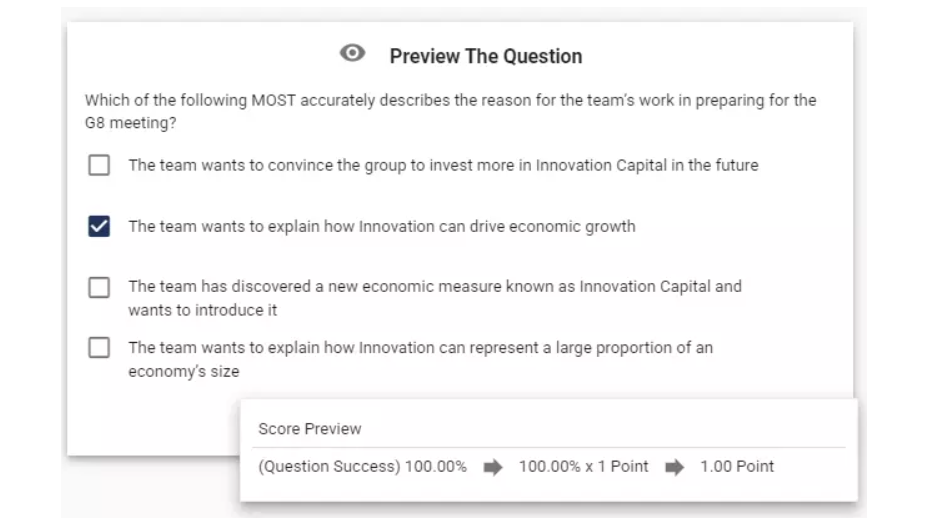
After the test consisting of multiple-choice questions is taken by candidates, you can import the information of the selected answers in each question. With the Exam Results Import Tool, you can choose exactly what information you want to import.
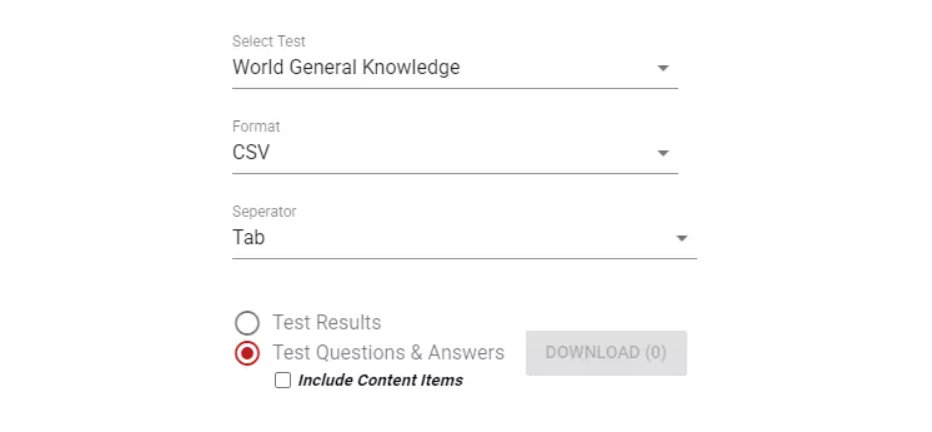
You can save all your multiple-choice questions in your question bank. In order to do this, it is enough to specify the folder name in which the question will be stored and the tags to which you will link to the question. Folders and tags make it easy for you to find quickly the exact questions you want from the question bank.
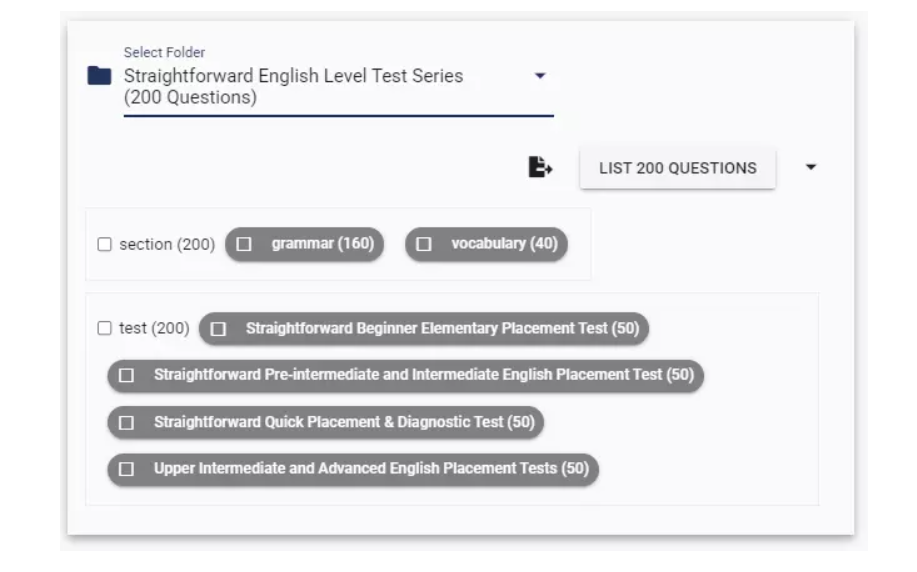
The true-false question is a multiple-choice question with 2 options. One of the options is set as true and the other as false. The true option is marked as true.

In this multiple choice question type, candidates can choose only one among many options. If the answer they choose is correct, they get full point from the question.
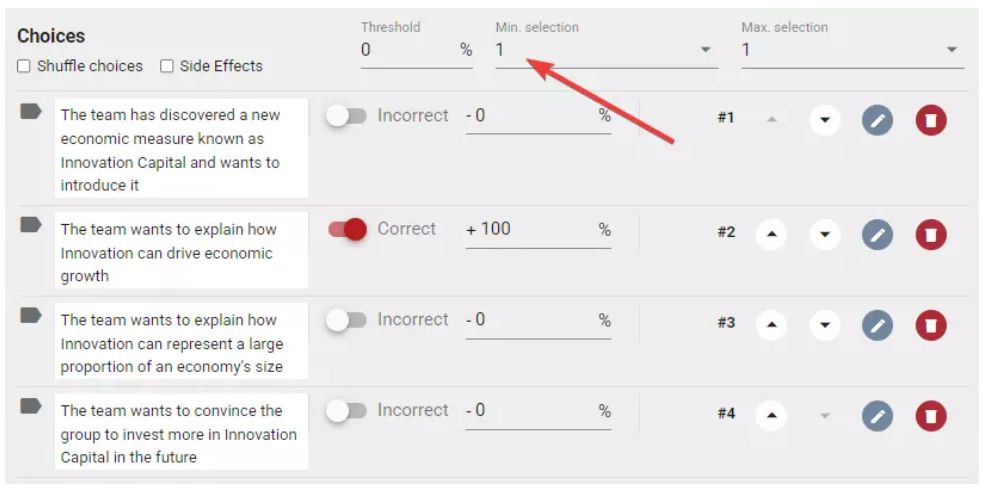
In this question type, candidates can choose only one among many options. If the answer they choose is correct, they get full point from the question.
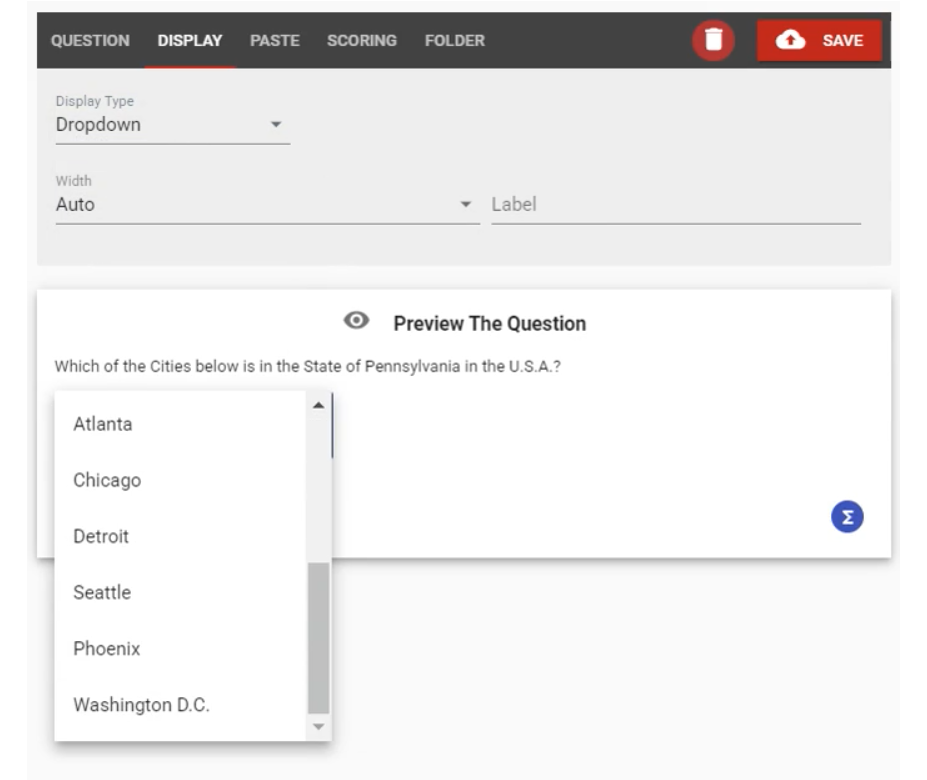
In this question type, candidates can select more than one option. The minimum and the maximum number of options can be determined before. Candidates get a success rate in proportion to the success contribution rates of the options they have chosen.
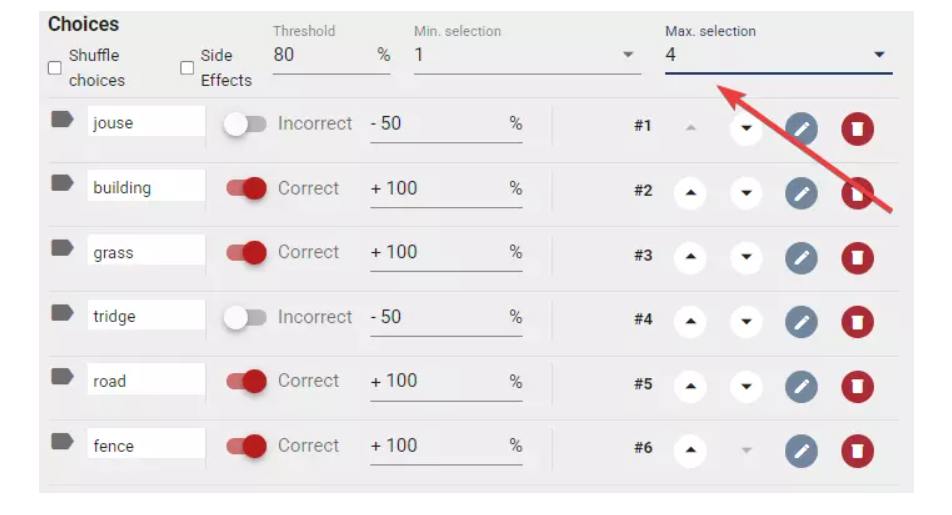
In this question type, the question is followed by options where each option is a picture. Candidates answers the question by choosing a single picture that they think is correct.
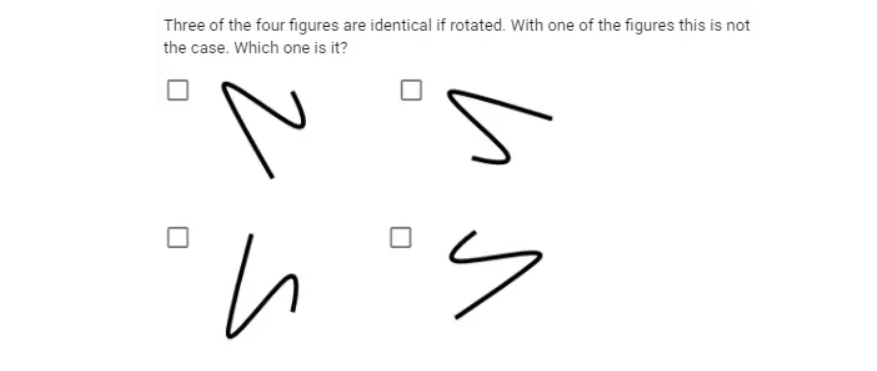
In this question type, the question is followed by options where each option is a picture. Candidates answer the question by choosing the pictures they think are correct.
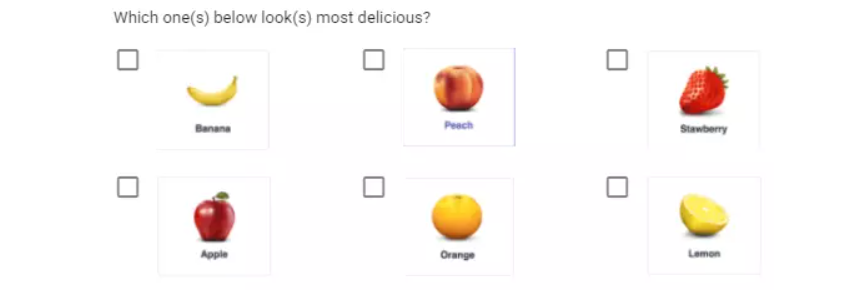
In the question, a listening piece that the candidate can listen to is given. After listening to the audio file, the candidate answers the question by selecting the correct option.
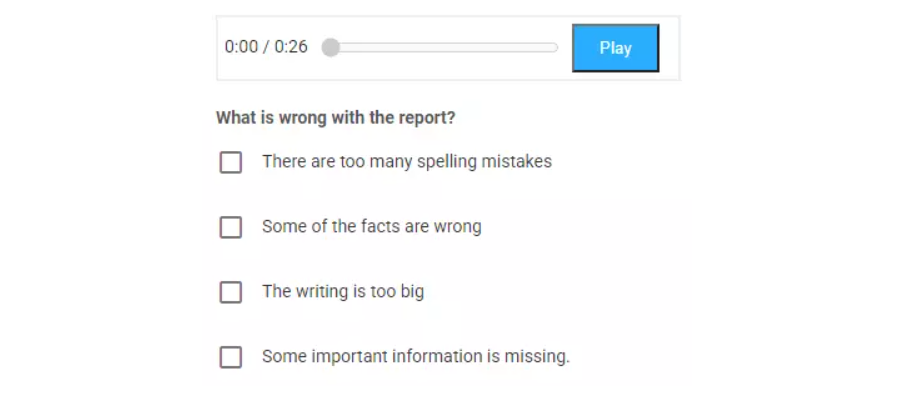
In the question, a listening piece that the candidate can read is given. After reading, the candidate answers the question by selecting the correct option.
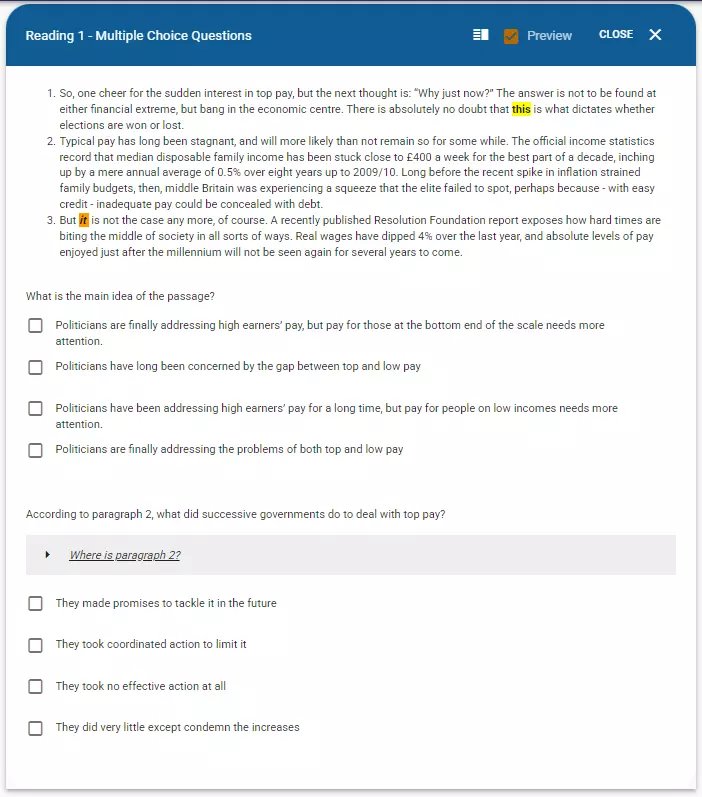
In the question, a video that the candidate can watch is given. After watching, the candidate answers the question by selecting the correct option..
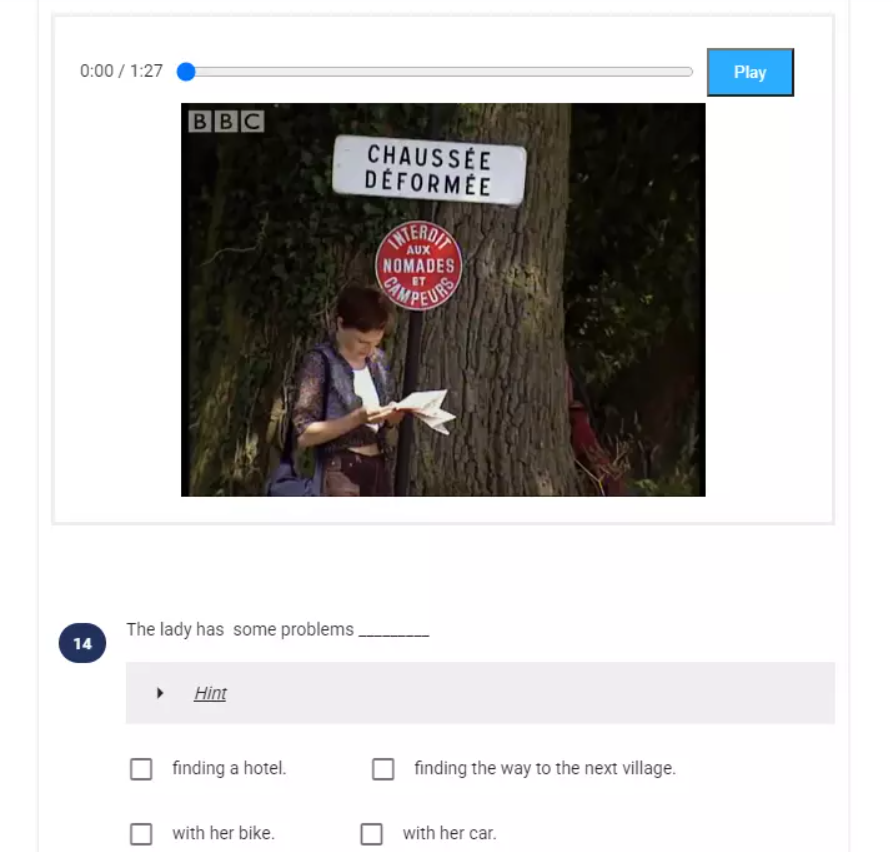
Additional content can be added to the right or left side of the multiple choice question. This content can be a reading text, video, audio file, picture.
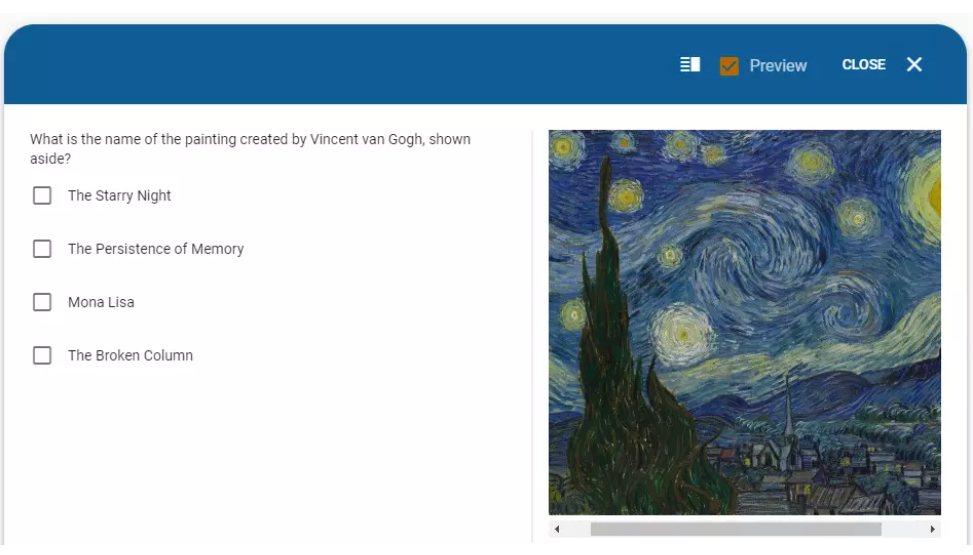
Multiple choice questions are categorised in the objective type questions. It means that the answers given to the questions are evaluated objectively by the assessment system automatically and immediately. Due to this reason, assessment process become more fair and unjust situations can be prevented.
The fact that the evaluation of the answers can be made automatically and immediately provides both quickness and cost advantages.
Multiple choice questions are the most frequently used question type in the world. Due to this reason, it is the type of question that candidates are most used to answering. So it is easy, does not cause any confusion or misunderstanding.
With multiple-choice questions, you can both test the candidate's knowledge on a subject and evaluate which topic the candidate is more inclined to. In this regard, multiple-choice questions have become the basic element of inventories such as personality inventories, competency inventories, culture tests, and also achievement-oriented tests such as language tests, mathematics tests, IQ tests, ability tests.

Because of the fact that multiple choice questions can be evaluated automatically by the examination system, they are also the ideal question type for pilot tests, self-tests and practice tests. As the system can provide immediate feedback on the answers given by the candidate, or at the end of the test, it can list the questions answered correctly and incorrectly by the candidate, and show the correct answer and an explanation for the questions answered incorrectly.
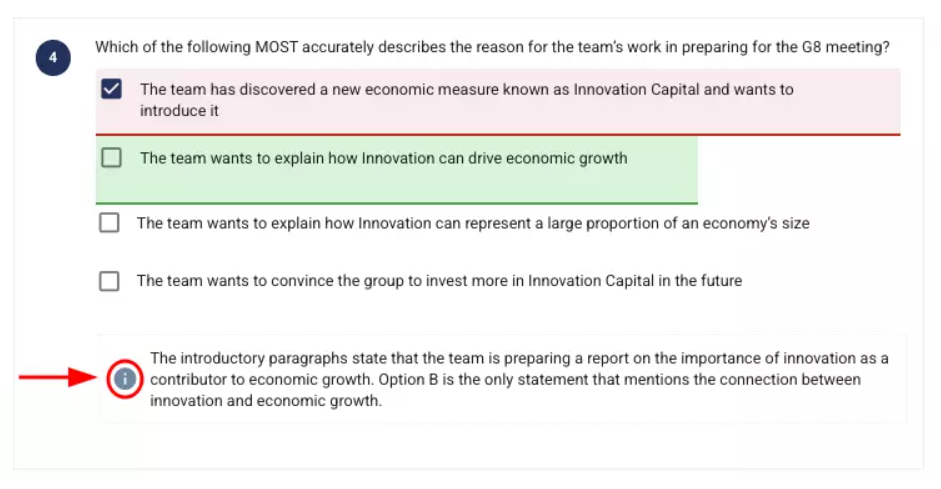
If you are preparing a multiple-choice question to test candidates' knowledge on a topic, the distracting options need to be well created. The reason that, if the incorrect options are not distracting, candidates may select the correct option even though they have insufficient knowledge on a subject.
Not all questions are suitable to be answered by selecting one or more options. For instance, if you want to assess a candidate's speaking skills, performance on a topic or presentation skills, it is not possible to evaluate directly with multiple choice questions.
By taking the demo test we have created for you, you may get an idea of the multiple choice question types you can prepare with the Testinvite assessment system.
Try sample test